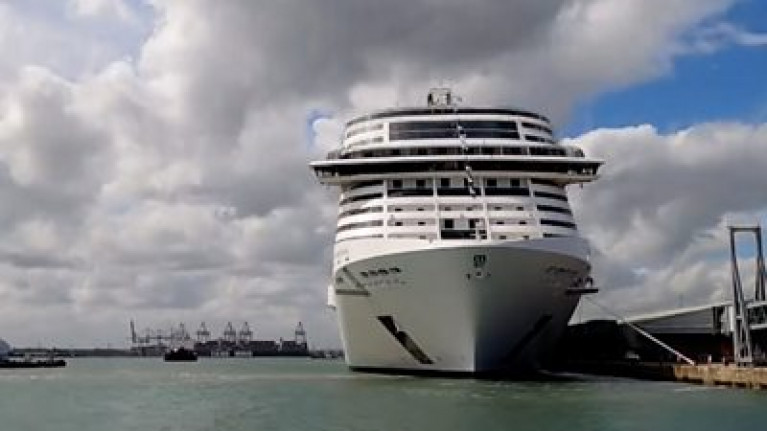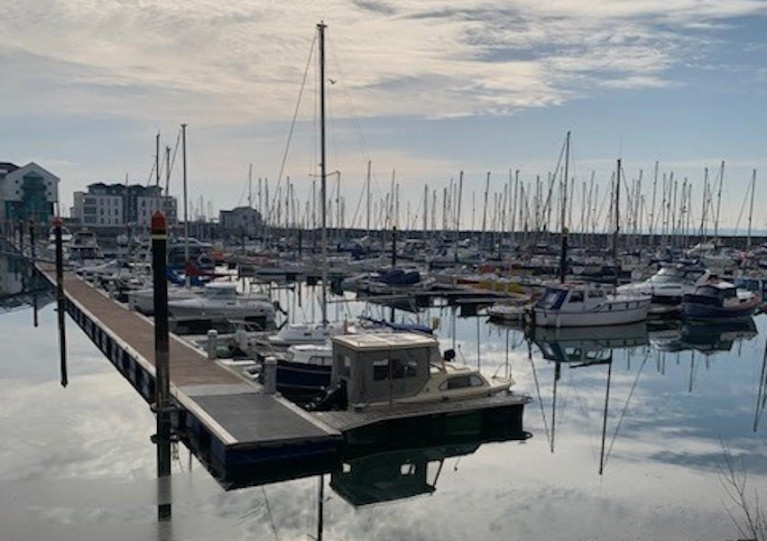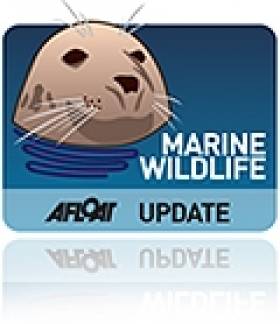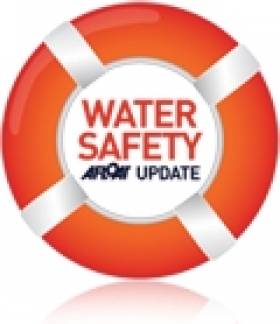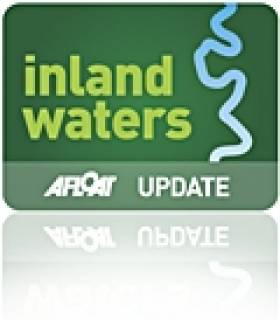Displaying items by tag: UK
The UK’s Office for Product Safety and Standards has announced a product recall for 11 models of lifejackets sold via online retailer Amazon over safety concerns.
Officials confirm that the affected products were not supplied with the required compliance documentation or markings to demonstrate that they have been adequately conformity assessed.
The models of lifejackets purchased by users via Amazon are those with the following brand names: NILIPEI, FLOATTOP, LIXONG, ROSOAMY, GRELANT, AJING, ZENING, STECTO, OMOUBOI, WELLPATH and Rrtizan.
The products do not meet the requirements of the PPE Regulation 2016/425 and as such, the Office for Product Safety and Standard recommend that owners stop using these products immediately. Owners are also recommended to contact the distributor to request redress.
For further information and product details, visit the GOV.UK website.
Marine Mammals Among Victims of Rise in Crimes Against Wildlife in UK
Marine mammals are among the victims of a rise in crimes against wildlife in the UK, according to the Belfast Telegraph.
Data collected by an alliance of 16 conservation groups suggests that in Cornwall alone, incidents involving marine wildlife nearly doubled in 2020 on the previous year.
But they also claim that convictions overall fell by more than half — prompting a call for police and prosecutors to take wildlife crimes more seriously.
The Belfast Telegraph has more on the story HERE.
First UK Cruise Since Pandemic Departs On the Solent
In UK waters is where the first cruise voyage since the coronavirus pandemic began has got under way.
As BBC News reported, MSC Virtuosa departed Southampton (yesterday evening) on a four-night English Channel excursion, with a stop at Portland in Dorset, where Afloat adds the 6,300 capacity ship is currently berthed.
Passengers joining the (MSC Cruises operated) cruise ship earlier said it was "absolutely amazing" and a "momentous day".
Some other cruise lines are also planning UK-only voyages this summer.
P&O Cruises previously announced it would extend its ban on international trips until the end of September, while Princess Cruises is also offering domestic voyages.
Afloat adds the operator's German built Iona, the largest cruiseship custom built for the UK market is also currently on the English Channel coast at Southampton.
The Hampshire port is where a new fifth dedicated terminal is to open this summer.
British Marine has said recent guidance issued by the UK Government confirms that canal boats and other vessels in England are, in its view, eligible for COVID-19 recovery grants.
The Restart Grants were announced earlier this month by Britain’s Chancellor of the Exchequer, Rushi Sunak, and are issued by local authorities in England.
“This confirmation means that accommodation providers, such as vessels and canal boats, should be eligible for a one-off grant of up to £18,000 to support them throughout the ongoing pandemic and the subsequent restrictions on trading,” British Marine said.
The grant is exclusively for businesses which pay business rates, with the exact value of the grant determined by the businesses’ rateable value:
- Businesses occupying hereditaments appearing on the local rating list with a rateable value of exactly £15,000 or under on 1 April 2021 will receive a payment of £8,000.
- Businesses occupying hereditaments appearing on the local rating list with a rateable value over £15,000 and less than £51,000 on 1 April 2021 will receive a payment of £12,000.
- Businesses occupying hereditaments appearing on the local rating list with a rateable value of exactly £51,000 or over on 1 April 2021 will receive a payment of £18,000.
British Marine advises its members to contact their local authority to discuss their eligibility. Members can also visit British Marine’s COVID-19 microsite for the latest information.
UK Sailing Clubs Struggle To Get Back On The Water
UK sailing clubs are still struggling to get back on the water under more relaxed coronavirus restrictions, according to SailWeb.
While the blanket shutdown on sailing activity lifted in England four weeks ago, and rules amended in Wales, Scotland and Northern Ireland more recently, the magazine says “little has really changed” as most club facilities remain on lockdown for the time being.
As reported earlier this week on Afloat.ie, the situation in Northern Ireland is fluid to say the least, with some harbours and marinas open for residents only if they are open at all.
And SailWeb suggests that smaller clubs run on a volunteer basis “will struggle to provide more than individual social sailing” without required safety assessments.
Although some crews, such as family-crewed boats, have been getting creative with ad-hoc or ‘scratch racing’, organised events and even regular club racing are still some time from returning.
SailWeb has more on the story HERE.
Sailing clubs and centres in England are already beginning to benefit from the £22 billion grant and business rates package recently announced by the Chancellor Rishi Sunak, the RYA says.
Businesses in the retail, hospitality and leisure industry, such as RYA-affiliated sailing clubs and recognised training centres, will be eligible for a one-off grant payment dependant on their rateable value.
Those with a rateable value of less than £15,000 will receive £10,000 and those clubs with a rateable value of between £15,000 and £51,000 will be provided with a grant of £25,000.
Business rates in England have also been suspended for the next 12 months — though devolved administrations in Wales, Scotland and Northern Ireland set their own rates, and their measures if any may involve a reduction rather than a suspension.
It is understood that local authorities may be contacting businesses either via letter or by email this week. As the clubhouse is usually the registered business address for sailing clubs, this may cause a delay in receiving notification due to the current travel restrictions.
The RYA suggests that sailing clubs and training centres should contact their local authority and ask for any communication to be sent via email instead, or for any essential letters to be temporarily re-directed to a more convenient address.
European Commission Urges UK To Protect Harbour Porpoise
#MarineWildlife - Via the Irish Whale and Dolphin Group (IWDG) comes news that the European Commission (EC) is asking the United Kingdom to designate protected areas for the harbour porpoise.
The EU legislation on the conservation of natural habitats and of wild fauna and flora (Habitats Directive) requires member states to propose a list of protection sites for a number of species that are native to their territory, ensuring their protection from interventions which could seriously compromise their ecological character.
Despite a large number of harbour porpoise – a protected marine species in the Republic of Ireland – regularly found in its waters, the UK has, according to the EC, "so far proposed only one small site in Northern Ireland, exposing some of the identified sites to the risk of offshore wind farm development."
The EC adds that it has "repeatedly urged the UK to fulfil its key obligations for this species, but no further designations of sites have been proposed."
This current acton by the EC follows a letter of formal notice sent to the UK government in June 2013. If the UK fails to reply within two months, the commission may refer the case to the EU Court of Justice.
New UK Figures Show 381 Water-Related Deaths In 2013
#WaterSafety - There were a total of 381 drownings and water-related deaths from accidents or natural causes across the United Kingdom in 2013, according to a report published this week by Britain's National Water Safety Forum (NWSF).
As in previous years, more than half of that number (227) were in inland waters, such as tidal and freshwater rivers, lakes and reservoirs, while fatalities at the sea, on the beach or shoreline accounted for nearly a third (115).
A further 22 deaths happened at harbours, docks, marinas and inland or coastal ports. Eight deaths occurred in the bath and six in swimming pools, while three happened in areas that are not normally watercourses such as marsh and flooded land.
The figures include deaths in water that resulted from natural causes such as a heart attack, drowning or other fatal injuries resulting from falls into water and those that occurred during the course of water-based activities.
The NWSF’s Water Incident Database (WAID) breaks down drownings and other water-related deaths by activity, age and location type. It reveals that in 2013 the five-year age group with the highest number of fatalities (31) was males aged between 20-24.
Meanwhile, 0-19s accounted for 12 per cent of deaths (46), of which more than half were teenagers aged 15 to 19 (27). In the youngest age bracket of four and under, 10 children drowned.
The peak summer months of July and August witnessed the most deaths, with 106 during this period.
The leading activities were people walking alongside water and falling in, swimming (predominantly in open water) and jumping into open water.
There were 260 deaths in England, 56 in Scotland, 41 in Wales and 11 in Northern Ireland. In England, the South West (53) and the South East (50) regions had the highest number of deaths.
NWSF deputy chair Jim Watson said: “Although the number of accidental drownings and water-related deaths has remained consistent in recent years, there should be no room for complacency, particularly as we enter the warmer summer months and more people are drawn to the water.
“We encourage people to enjoy the UK’s waters, but to make sure they understand the risks and come home safely.”
A full copy of the UK Water-Related Fatalities 2013 report can be downloaded as an Excel spreadsheet HERE.
The WAID was developed by NWSF members, including national partners the Canal and River Trust, the British Sub Aqua Club, the Maritime and Coastguard Agency, the RNLI, RoSPA and the Royal Life Saving Society; sports governing bodies; and regional and local organisations, including Cornwall Council. It was developed in partnership with the UK government's Department for Transport.
British Rivers And Canals Now On Google Street View
#InlandWaterways - Some of Britain's most famous inland waterways can now be followed on Google Street View thanks to the internet company's latest bit of kit.
The Canal & River Trust reports that it was the first organisation in the UK to take loan of Google's Trekker, a backpack device with a camera that captures images in all directions every 2.5 seconds wherever the wearer walks.
The Trekker allows Google's mapping team to reach areas that the Street View car and tricycle often cannot access, such as canal towpaths.
Now the fruits of labour by some 20 staff and volunteers of the Canal & River Trust can be seen online - such as Bingley's five locks on the Leeds & Liverpool Canal, Little Venice in London and the Pontcysyllte Aqueduct in North Wales.
Hopefully Ireland's own inland waterways won't be too far behind!
UK Marine Sector 'Exports Its Way Back To Growth'
#LondonBoatShow - The UK's domestic boat sales market is heading back towards pre-recession levels, according to marine leisure industry body the British Marine Federation.
Releasing its latest data to coincide with last week's London Boat Show, the BMF points out that the marine sector is now in a "bullish mood" at home, thanks to the support of a strong export market.
A whopping 7.7% increase in overseas trade in 2012/13 - primarily to the continent and the United States - helped drive overall revenue up by 1.7% for the same period, for a total of almost £3 billion.
The BMF also cites strong demand for boats manufactured in the UK, and forecasts for builds and sales are up, with almost half of companies across the reporting better business.
Indeed, the federation's figures show that 48% of leisure marine businesses increased turnover between May and November last year.
BMF chief executive Howard Pridding said the federation is "confident that 2014 will welcome a new period of sustained growth for the sector" that has "exported its way back into growth".



























